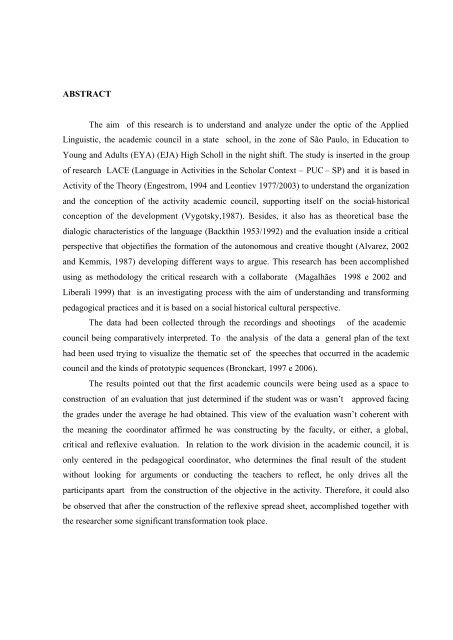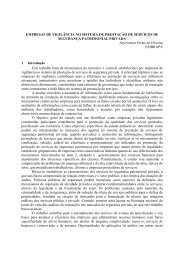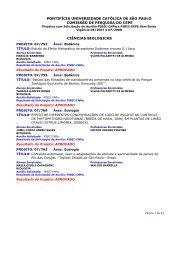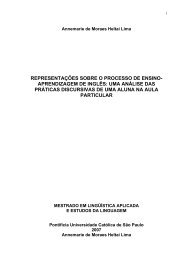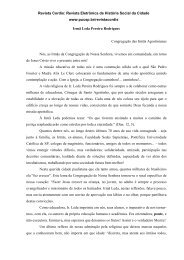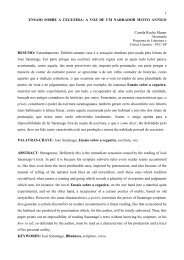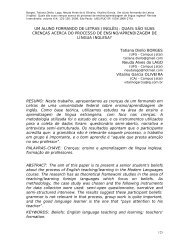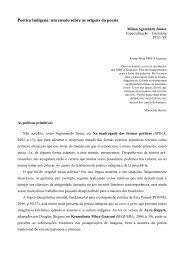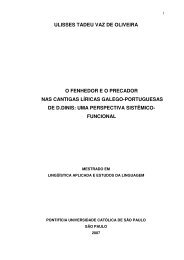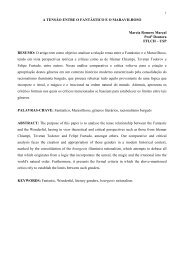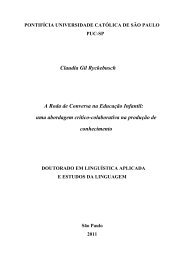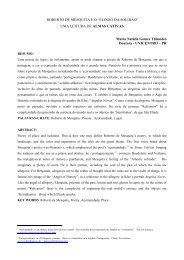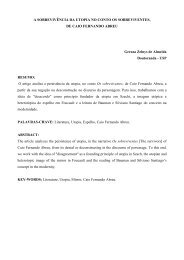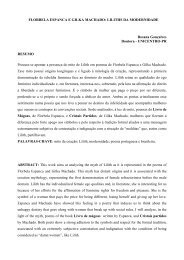Conselho De Classe: Que Espaço É Esse? - PUC-SP
Conselho De Classe: Que Espaço É Esse? - PUC-SP
Conselho De Classe: Que Espaço É Esse? - PUC-SP
You also want an ePaper? Increase the reach of your titles
YUMPU automatically turns print PDFs into web optimized ePapers that Google loves.
ABSTRACT<br />
The aim of this research is to understand and analyze under the optic of the Applied<br />
Linguistic, the academic council in a state school, in the zone of São Paulo, in Education to<br />
Young and Adults (EYA) (EJA) High Scholl in the night shift. The study is inserted in the group<br />
of research LACE (Language in Activities in the Scholar Context – <strong>PUC</strong> – <strong>SP</strong>) and it is based in<br />
Activity of the Theory (Engestrom, 1994 and Leontiev 1977/2003) to understand the organization<br />
and the conception of the activity academic council, supporting itself on the social-historical<br />
conception of the development (Vygotsky,1987). Besides, it also has as theoretical base the<br />
dialogic characteristics of the language (Backthin 1953/1992) and the evaluation inside a critical<br />
perspective that objectifies the formation of the autonomous and creative thought (Alvarez, 2002<br />
and Kemmis, 1987) developing different ways to argue. This research has been accomplished<br />
using as methodology the critical research with a collaborate (Magalhães 1998 e 2002 and<br />
Liberali 1999) that is an investigating process with the aim of understanding and transforming<br />
pedagogical practices and it is based on a social historical cultural perspective.<br />
The data had been collected through the recordings and shootings of the academic<br />
council being comparatively interpreted. To the analysis of the data a general plan of the text<br />
had been used trying to visualize the thematic set of the speeches that occurred in the academic<br />
council and the kinds of prototypic sequences (Bronckart, 1997 e 2006).<br />
The results pointed out that the first academic councils were being used as a space to<br />
construction of an evaluation that just determined if the student was or wasn’t approved facing<br />
the grades under the average he had obtained. This view of the evaluation wasn’t coherent with<br />
the meaning the coordinator affirmed he was constructing by the faculty, or either, a global,<br />
critical and reflexive evaluation. In relation to the work division in the academic council, it is<br />
only centered in the pedagogical coordinator, who determines the final result of the student<br />
without looking for arguments or conducting the teachers to reflect, he only drives all the<br />
participants apart from the construction of the objective in the activity. Therefore, it could also<br />
be observed that after the construction of the reflexive spread sheet, accomplished together with<br />
the researcher some significant transformation took place.


